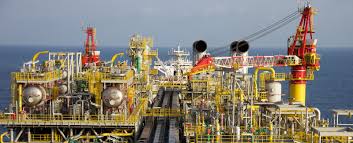Exploring the Future of Offshore Oil and Gas Companies
Oil and gas offshore companies play a vital role in the global energy market, and their future is a topic of great interest and speculation. As the demand for energy continues to rise, these companies are faced with new challenges and opportunities in the exploration and extraction of oil and gas reserves. In this article, we will explore the future of offshore oil and gas companies, examining the technological advancements, market trends, and environmental considerations that will shape their operations in the coming years. By understanding the potential pathways for these companies, we can better anticipate the impact they will have on the energy industry and the world at large.
Exploring the future of offshore oil and gas companies involves examining the potential impact of technological advancements, environmental regulations, and market dynamics on their operations. This includes assessing the development of renewable energy sources, the implementation of more stringent emissions standards, and the shifting demand for fossil fuels. Additionally, it involves considering the potential for digital transformation and automation to improve efficiency and safety in offshore operations. Overall, exploring the future of these companies requires a comprehensive analysis of the evolving industry landscape and the strategies necessary for long-term sustainability.
The Rise of Oil and Gas Offshore Companies in the Global Market
global oil and gas services company

The rise of oil and gas offshore companies in the global market can be attributed to several factors. Firstly, advancements in technology have made it more viable and cost-effective to extract oil and gas from offshore reserves. This has opened up new opportunities for companies to explore and develop offshore fields. Additionally, the increasing global demand for energy has led to a growing emphasis on offshore exploration and production. Offshore reserves are often found in deeper waters and can require specialized expertise and equipment, providing a niche for companies that specialize in offshore operations. Furthermore, the potential for significant returns on investment has attracted many companies to invest in offshore projects. As the global population and industrialization continue to drive energy demand, offshore oil and gas extraction is likely to remain a lucrative industry for companies operating in the global market. In conclusion, the rise of oil and gas offshore companies in the global market can be attributed to technological advancements, growing demand for energy, and the potential for high returns on investment. This trend is likely to continue as offshore reserves become an increasingly important source of oil and gas production.
Challenges and Opportunities for Oil and Gas Offshore Companies

Challenges for oil and gas offshore companies include increasing regulatory and environmental pressures, volatile oil prices, and the high cost and complexity of offshore projects. Additionally, securing financing for capital-intensive projects and geopolitical instability in regions with offshore operations pose significant challenges. On the other hand, opportunities for offshore oil and gas companies include the potential for significant reserves, growing global energy demand, advancements in technology for safer and more efficient operations, and the increasing focus on renewable energy as a complement to traditional oil and gas production. Expanding into new offshore regions and leveraging digitalization and data analytics can also present growth opportunities for companies in this sector.
Innovations and Technologies Driving Oil and Gas Offshore Companies
Innovations and technologies driving oil and gas offshore companies include advanced seismic imaging techniques, such as 4D seismic technology, which allows for better visualization and understanding of reservoirs to optimize production. Additionally, digitalization and automation are being utilized to increase efficiency and safety in offshore operations. Robotics and autonomous systems are also being implemented for inspection and maintenance tasks in remote and hazardous offshore environments. Other notable advancements include advanced materials for offshore structures, such as corrosion-resistant alloys, and enhanced drilling technologies to access previously inaccessible reserves.Overall, these innovations and technologies are reshaping the offshore oil and gas industry, leading to increased productivity, safety, and environmental sustainability.
Exploring the Environmental Impact of Oil and Gas Offshore Companies
Exploring the environmental impact of oil and gas offshore companies involves studying the effects of drilling, production, and transportation activities on marine ecosystems, air and water quality, and wildlife. It also involves assessing the potential for oil spills and leaks, as well as the long-term consequences of offshore operations on climate change and biodiversity. Researchers and environmental organizations analyze data and conduct field studies to understand the full extent of the impact and develop strategies for mitigating the negative effects of oil and gas activities on the environment.
The Future Outlook for Oil and Gas Offshore Companies
The future outlook for oil and gas offshore companies is expected to be impacted by several key factors. These include the ongoing transition to renewable energy sources, fluctuating oil prices, and increasing regulatory and environmental pressures. Offshore companies will need to adapt to these changes by investing in technology and innovation to enhance efficiency and reduce costs. Additionally, diversifying into new energy markets, such as offshore wind farms, may present opportunities for growth. Overall, the future for oil and gas offshore companies will likely require a more sustainable and diversified approach to remain competitive in the evolving energy landscape.